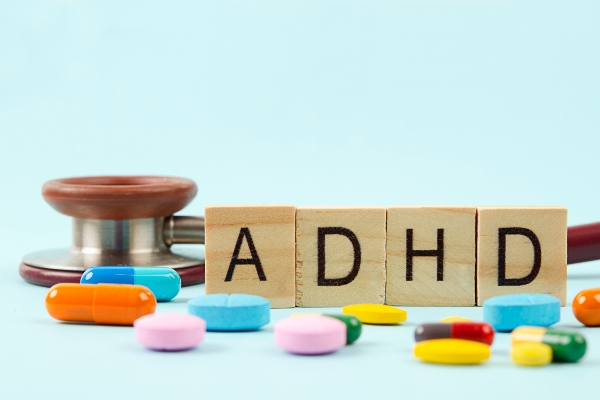 The standard treatment for attention-deficit/hyperactivity disorder, or “ADHD,” comprises therapy, skills training, and medication. However, many people wait to incorporate medication into their ADHD treatment. While clients of all ages may see an improvement in their symptoms with therapy and training alone, others find a greater benefit from combining these treatments with ADHD medication.
The standard treatment for attention-deficit/hyperactivity disorder, or “ADHD,” comprises therapy, skills training, and medication. However, many people wait to incorporate medication into their ADHD treatment. While clients of all ages may see an improvement in their symptoms with therapy and training alone, others find a greater benefit from combining these treatments with ADHD medication.
Understanding ADHD
As described by the American Psychiatric Association, ADHD is a mental disorder that affects one’s ability to focus, complete tasks, and control impulses. It is one of the most common childhood mental disorders, although many adults live with ADHD as well. These symptoms can manifest in various ways, depending on age.
Adult ADHD
Adults with ADHD may struggle to complete work tasks, pay attention during meetings, and maintain social relationships. They may have poor organizational skills and lack impulse control. It is common for adults with ADHD to be late and impatient, lose their belongings, and forget to pay bills on time.
Childhood ADHD
Similarly, children with ADHD often struggle to pay attention in various situations (in class, at home), lack patience, and find it hard to sit still or wait their turn. They are often told they talk too much. The main issue with childhood ADHD is that, if untreated, it can negatively impact one’s academic life and follow them into adulthood.
Signs it may be time to try ADHD medication
No matter the age, psychiatrists typically recommend combining multiple treatment methods to help a client with ADHD. Therapy and skills training can give clients the tools they need to manage their symptoms, such as through routine-building and time-management techniques. In particular, cognitive behavioral therapy (CBT) — the type of therapy most often used for ADHD — can help clients change thought patterns that feed their ADHD, replacing them with more helpful ones.
Treatment is an investment. To reap the benefits of that investment sooner, many clients find it helpful to take medication. A client should consider trying ADHD medication if the following applies:
- ADHD symptoms get in the way of work or school: When one’s ADHD symptoms become severe enough to result in poor job performance or bad grades, consider medication.
- Symptoms begin to interfere with personal relationships: Since ADHD is marked by forgetfulness, impulsivity, and impatience, it can negatively impact friendships and relationships. In these cases, medication can reduce symptom intensity, putting a better social life within reach.
- Therapy alone does not feel like enough: When symptoms are so severe that they interfere with therapy homework and participation, medication may be needed to bring meaningful relief.
Depending on a client’s needs, a psychiatrist may prescribe a stimulant, non-stimulant, or antidepressant for ADHD. These medications may sometimes be prescribed together. The psychiatrist will work with each client (and their parents if the client is a child or adolescent) to find the prescription most beneficial for them.
Find out if ADHD medication is right for you
If you are considering ADHD medication, consult a psychiatrist about your treatment options. At our office, we strive to help our clients find relief from ADHD in a way that suits their lifestyle, needs, and comfort level. Let us help you make the most out of treatment.
Request an appointment or call Future Psych Ketamine Clinics at 843-788-9718 for an appointment in our Myrtle Beach office.
Related Posts
Attention-deficit/hyperactivity disorder, or “ADHD,” is a mental health condition that affects people of all ages. However, with the help of psychiatry, ADHD treatment is more than obtainable. If you or someone you love has been struggling, psychiatric treatment can help maximize one’s potential and live a healthy life.There are three types of ADHD one can…
If you have been diagnosed with adult attention-deficit/hyperactivity disorder, or “ADHD,” you may benefit from ADHD treatment. While every client is different, most struggle with the hallmark symptoms of ADHD: trouble focusing, difficulty completing tasks, and poor impulse control. A psychiatrist will develop a plan to manage the symptoms of ADHD that interfere with your…
Pregnancy is a transformative and exciting time for many people. However, for those with attention deficit hyperactivity disorder (ADHD), it can present new and unique challenges. ADHD is a neurodevelopmental disorder that affects people of all genders and ages, and it can have significant implications for individuals navigating pregnancy.A main concern for pregnant patients with…
